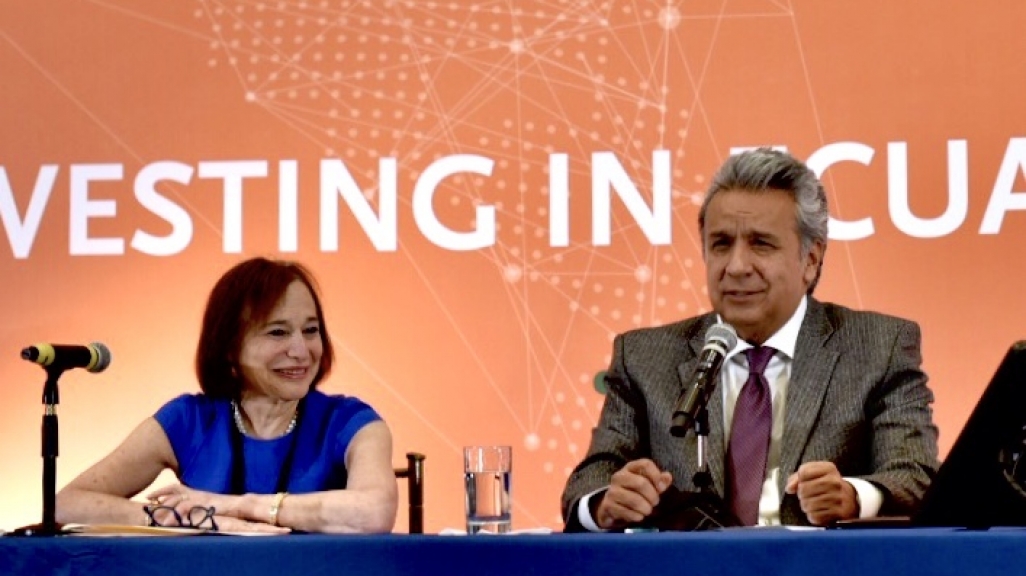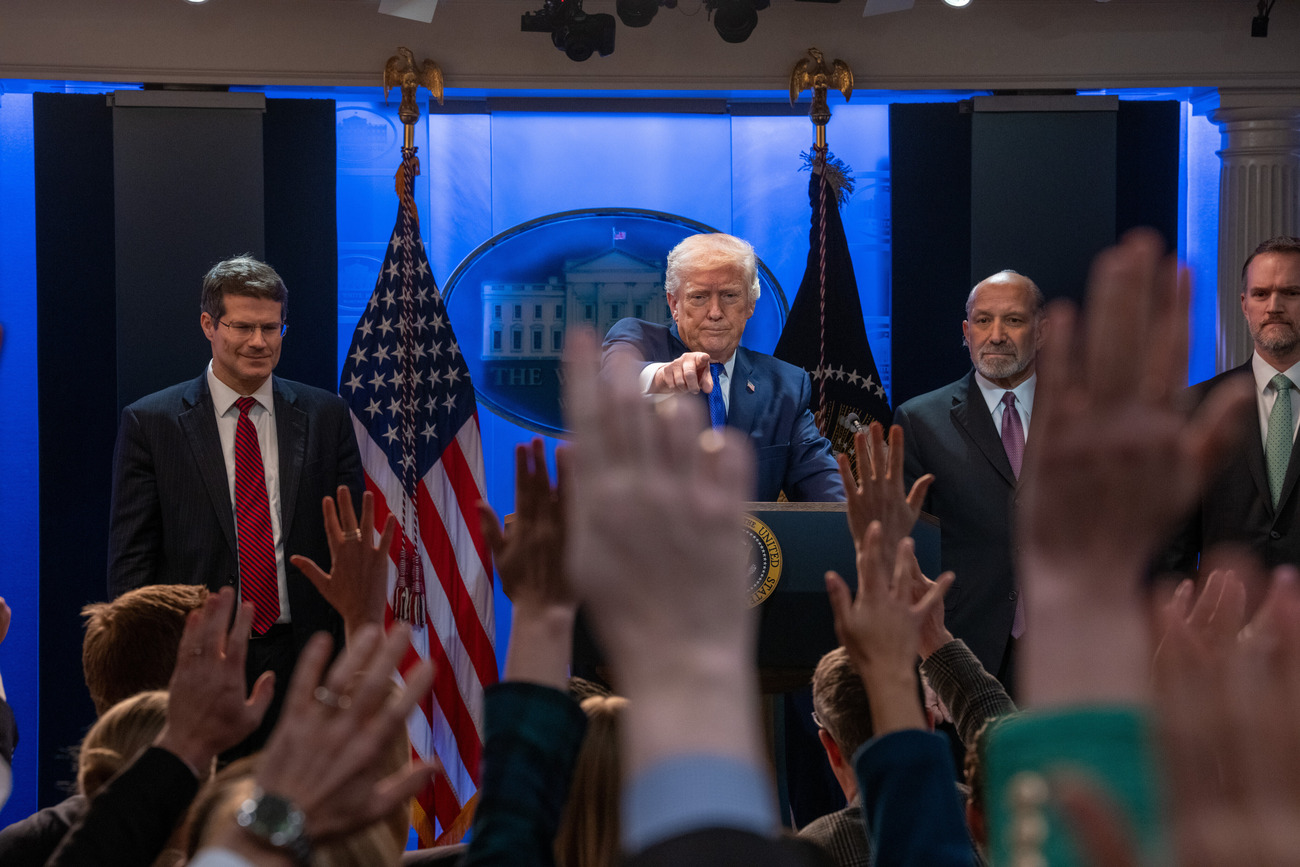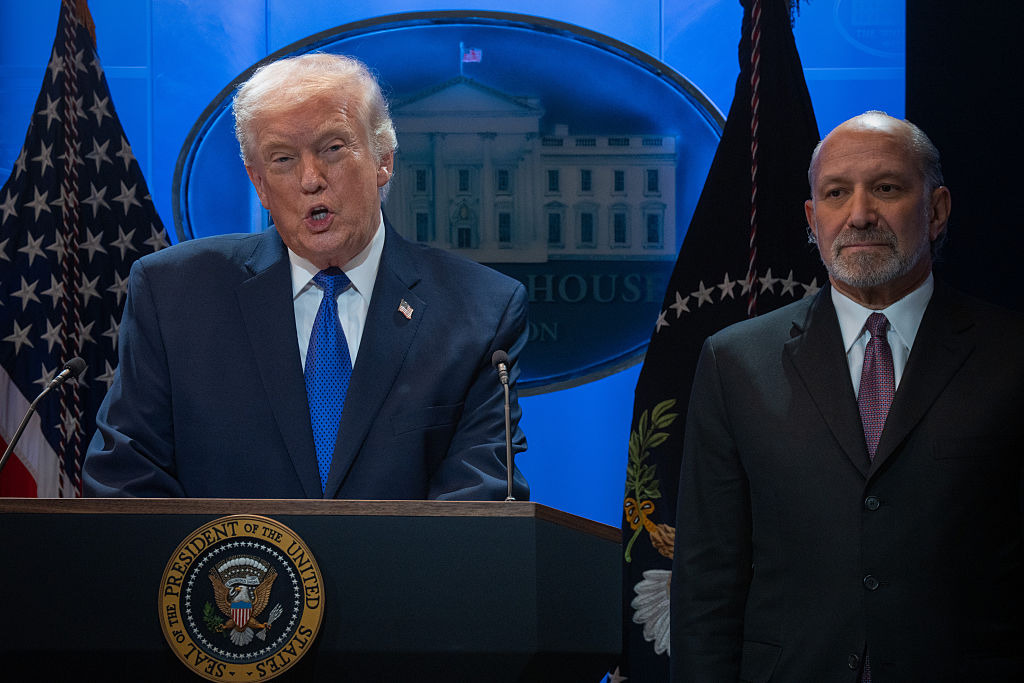Recap: #EcuadorASCOA 2018
Recap: #EcuadorASCOA 2018
Ecuador is open for business, said President Lenín Moreno at AS/COA’s first conference in Quito in a decade.
Lea una versión del resumen en español.
View the #EcuadorASCOA discussion on Twitter.
“We are opening ourselves to the world. We are refreshing our foreign relations,” said President Lenín Moreno at AS/COA’s Latin American Cities Conference in Quito, titled “Investing in the Future of Ecuador,” the first such event in the country in a decade. The president, who marked his first year in office the prior week, emphasized to the more than 300 attendees in the room that his administration was committed to growth and change, meeting its international financial obligations, fighting corruption, and laying the groundwork for long-term sustainable economic growth. “There are many reasons to be optimistic about the future of Ecuador,” said AS/COA President and CEO Susan Segal, who introduced the president, highlighting that FDI thus far in 2018 was already more than all of that in 2016 and 2017 combined.
#Entrevista | No se pierda la entrevista a Susan Segal, presidenta y CEO de Americas Society/Council of the Americas(@ASCOA)►https://t.co/Z0bHPCjGOA pic.twitter.com/SOdyFvXWo3
— El Telégrafo Ecuador (@el_telegrafo) May 30, 2018
“Los hombres y mujeres de negocios modernos, honestos, responsables y con visión social, son bien recibidos en todo el Ecuador”, @Lenin Moreno #EcuadorASCOA
— Comunicación Ecuador (@ComunicacionEc) May 30, 2018
Foreign Trade Minister and Investment Minister Pablo Campana spoke next, emphasizing the country's advantages in the areas of renewable energy, roads, and strategic geographic location in Latin America. Campana said Ecuador is about to start negotiations on free-trade agreements with India and the United Kingdom, and is laying the groundwork to open negotiations with at least five other countries, including the United States and Mexico. Quito and Washington are aiming to begin negotiations in the second part of 2018, he said. The agreement with Mexico will be a key foundational step toward Ecuador being able to join the Pacific Alliance; Campana said Ecuador will participate in the trade bloc’s meetings this July. He also laid out a four-point plan to lower various income taxes and thereby incentivize investment.
El Gobierno Nacional declaró la atracción de inversiones como una Política de Estado. Por ello propusimos a la Asamblea el proyecto de #LeyFomentoProductivo que contempla incentivos tributarios, seguridad jurídica y previsibilidad para los inversionistas. #EcuadorASCOA pic.twitter.com/ihLqHdoIrx
— Pablo Campana Sáenz (@CampanaPablo) May 30, 2018
How can Ecuador attract more investment in the short- and long-term? That was the theme of the first panel of the day, moderated by the Financial Times’ Gideon Long. Quito Chamber of Commerce President Patricio Alarcón said it was a relief there would be no more tax reforms, but that labor reform is needed since it is currently quite costly to cut jobs. “Everybody is looking for stability,” said PepsiCo’s Monica Contreras, emphasizing the need to improve the ease of doing business in the country. María Gabriel Gallardo of Microsoft focused her remarks on the growth of the digital economy, and Corporación América’s Ezequiel Barrenechea on the importance of the rule of law to private industry.
El 40% del producto interno bruto de América Latina en los próximos 2 o 3 años va a venir de la economía digital. —María Gabriela Gallardo de @MicrosoftEC en #EcuadorASCOA
Vea el webcast en vivo: https://t.co/wst75P4kXu pic.twitter.com/easPAmAjl3
— Americas Society/Council of the Americas (@ASCOA) May 30, 2018
Next up, Álvaro Jaramillo sat down for a fireside chat with Segal, in which he applauded Ecuador’s moves to join the Pacific Alliance, a bloc that accounts for over half of Latin America’s foreign trade. The Bogotá-based Citi regional executive said Ecuador’s investment portfolio was very much in line with the rest of the region in terms of engineering and tourism, and that in an area like infrastructure, the country is actually better positioned than some of its neighbors.
Lo importante del portafolio de inversión de Ecuador es que esta muy alineado con los inversionistas de América Latina, enfocado en ingeniería, infraestructura y turimso. —Alvaro Jaramillo #EcuadorASCOA pic.twitter.com/fbeXUYmijN
— Americas Society/Council of the Americas (@ASCOA) May 30, 2018
Newly appointed Economy Minister Richard Martínez said it was time to put the country’s finances in order and outlined the administration’s three-part financial plan to do so in his presentation. The plan includes stabilization and a reduction of the deficit in the first phase, paying off debts in the second, and balanced budget with stablized oil revenues in the third. He said the administration was committed to strengthening the dollarization of the economy as well.
#EcuadorASCOA un espacio en el que vi a empresarios nacionales y extranjeros motivados por invertir en el país en un nuevo y mejor momento para la actividad productiva.
La #LeyFomentoProductivo es una herramienta para acelerar esas inversiones. #Ecuador es su casa pic.twitter.com/jUxNsV3FpM
— Richard Martínez (@RichardM_A) May 30, 2018
Hydrocarbons Minister Carlos Pérez, whom Moreno also named mining minister just ahead of the event, presented next, outlining the administration’s energy policy. He highlighted how the country had boosted the share of energy produced by hydroelectricity from 48 percent to 84 percent in just over a decade, and he gave investors an overview of the government’s ongoing projects and long-term infrastructure development plan.
"Estamos promoviendo la inversión en el sector es así que vamos a realizar las rondas Intracampos y Suroriente y para el proyecto de la Refinería de Manabí", @CarlosPerez_MH #EcuadorASCOA pic.twitter.com/VtckWbbstB
— Hidrocarburos Ec (@RecNaturalesEc) May 30, 2018
Pérez then joined a discussion with Carlos Sarmiento of the oil tech company Schlumberger, moderated by the Ferrere law firm’s Javier Robalino Orellana, about Ecuador’s role as one of Latin America’s top oil producers, which exports 60 percent of its production to boot.
Carlos Sarmiento of Schlumberger: It is fundamental to have a framework of legal stability in the case of energy contracts. #EcuadorASCOA
— Americas Society/Council of the Americas (@ASCOA) May 30, 2018
In closing the event, acting Foreign Relations Minister Rolando Suárez acknowledged the government’s responsibility in establishing the necessary conditions for investment, as well as the private sector’s right to profit, highlighting again the administration’s theme of responsible investment for sustainable, long-term economic development. He also stressed the importance of female participation in the workforce and the need to close the gender wage gap.
Boletín | Ecuador propone a inversionistas extranjeros un nuevo modelo de Convenio Bilateral de inversiones: https://t.co/86LmkHJWsF #EcuadorASCOA pic.twitter.com/S681VlBCE1
— Cancillería Ecuador (@CancilleriaEc) May 30, 2018









